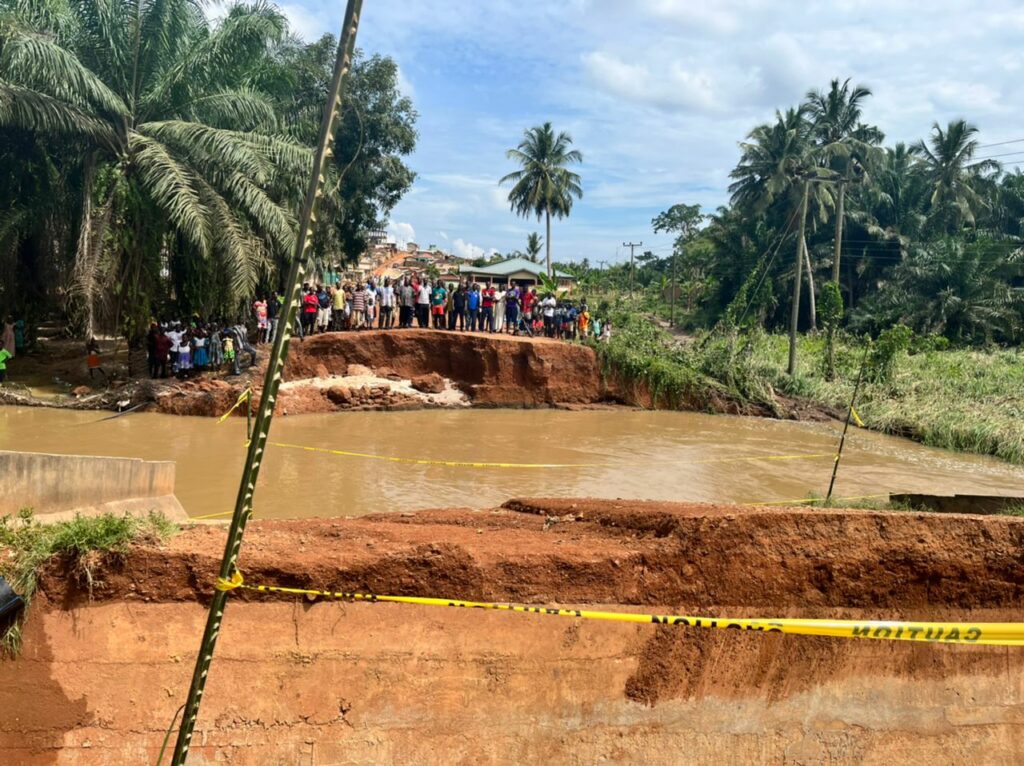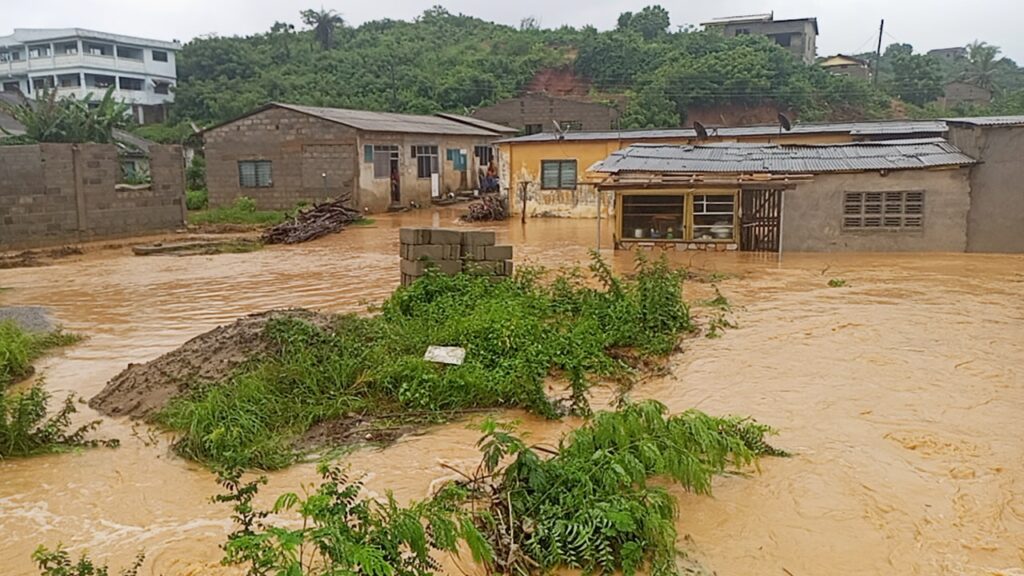Ghana loses over $780m in damages from flooding with more than four million people affected
Despite investments
 Flooding in Ghana happens every year, and the government has been making investments to deal with the problem, but the Auditor-General’s Report for 2021 has found that despite all the investments in managing flooding in the country, the efforts have not been effective, and more than four million people have been affected over a period of 50 years and damages incurred amount to more than $780 million.
Flooding in Ghana happens every year, and the government has been making investments to deal with the problem, but the Auditor-General’s Report for 2021 has found that despite all the investments in managing flooding in the country, the efforts have not been effective, and more than four million people have been affected over a period of 50 years and damages incurred amount to more than $780 million.
In its latest Report, the Auditor-General’s Department says it audited the Hydrological Services Department (HSD) of the Ministry of Works and Housing (MWH) to ascertain whether measures it has implemented to control and mitigate flooding in the country were effective and to recommend corrective measures for improvement.
The auditors found that despite the investments in flood protection structures, the problem of flooding has not lessened, with the country experiencing at least one major flood disaster every year, over the past 10 years.
Citing a study by Tasantab et al (2018), a group of settlement planning and disaster management experts on the flooding situation in Ghana, the Auditors say they found that in over 50 years, about four million people in the country have been affected by floods, resulting in economic damages exceeding $780 million.
According to the study Ghana’s urban areas like Accra and Kumasi, floods are triggered by seasonal rainfall and predicted that flood risks will get worse as rainfall classified as ‘heavy’ are projected to increase between 2010 and 2050.
The auditors after reviewing documents, conducting interviews with officials of MWH, HSD and contractors as well as physically inspecting projects, to gather evidence to support their observations found that HSD did not produce Drainage Master Plans (DMPs) to guide the coordinated development of drainage facilities which thus affected the department’s ability to plan the provision of flood control structures in a holistic manner.
“Each year, from 2015 to 2019, HSD significantly fell short of implementing their target of drainage facilities needed to mitigate flooding nationwide. Over the audit period, 12.2km (i.e., 11%) of the targeted 110km of drains was constructed and none of the retention ponds targeted for 18 drainage basins had been done,” they said.
The auditors also noted that HSD ensured contractors were paid for only valid works done and the final costs of projects were within their respective contract sums.
“However, construction of 20 (i.e., 74%) of 27 sampled projects delayed partly because of delayed payments to contractors which made them to suspend works on the projects,” they pointed out.
They further found that HSD and the MWH did not maintain completed and existing drains because maintenance was not prioritised and therefore not included in annual activity plans and budgets to enable implementation.
 “The unmaintained drains had weeds, silts, debris that impeded the smooth flow of water and reduced the effectiveness of existing drains to mitigate flooding. In our opinion, HSD’s implemented measures has largely not been effective in controlling and mitigating flooding in the country,” they said.
“The unmaintained drains had weeds, silts, debris that impeded the smooth flow of water and reduced the effectiveness of existing drains to mitigate flooding. In our opinion, HSD’s implemented measures has largely not been effective in controlling and mitigating flooding in the country,” they said.
The Report noted that Ghana experiences flood disasters every year, resulting in loss of lives and property.
“The National Disaster Management Organisation (NADMO), between 2015 and 2020, recorded 1,446 flood events, which caused 309 injuries, 510 deaths, 54,744 houses being inundated and the destruction of 136,563 acres of farmlands,” it said.
According to the Report, the Ministry and its implementing agency, HSD are responsible to provide and manage primary drains to control and mitigate flooding.
“From 2015 to 2019, an amount of GH¢117, 711,420.90 was invested in constructing and maintaining drains and culverts in flood-prone areas in the country but the problem of flooding persists. Research studies have attributed the problem of perennial flooding to inadequately sized culverts and blockage of drains due to neglect and lack of maintenance,” it said.
The Auditor-General then made recommendations to HSD/MWH, to have a long term and holistic planning of drainage development and collaborate with other key player agencies.
He also recommended that HSD prioritises the development of DMP as a blue print to guide key players to align drainage facilities and other civil infrastructure that create conflicts in drainage networks and reduced the efficiency and effectiveness of storm water drains.
By Emmanuel K. Dogbevi
Copyright ©2022 by NewsBridge Africa
All rights reserved. This article or any portion thereof may not be reproduced or used in any manner whatsoever without the express written permission of the publisher except for the use of brief quotations in reviews.
